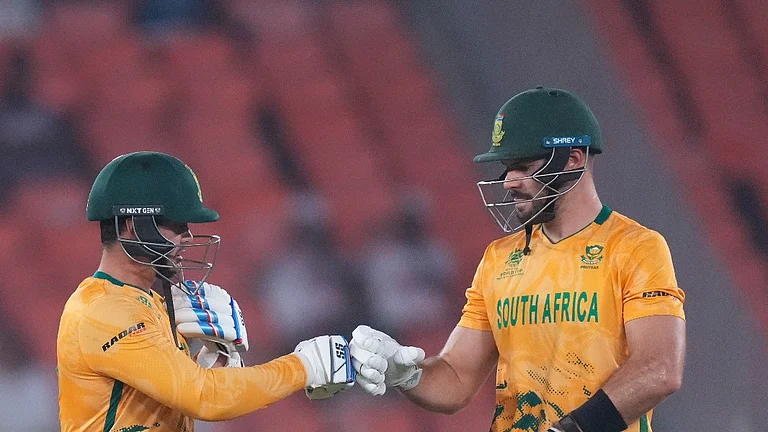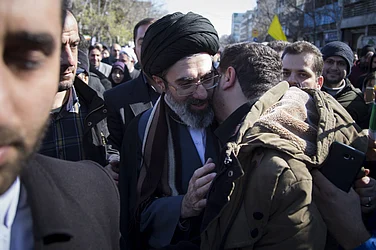Embattled Sri Lankan President Gotabaya Rajapaksa on Sunday said that he will consider looking into the proposals put forward by the influential lawyers' body to end the continued political and economic stability in the country, which is now under a state of emergency.
The Bar Association of Sri Lanka (BASL) has proposed a 11-point plan, which among other things, has called for the setting up of an interim government that would eventually lead to the abolition of the presidential system of governance.
“The President would consider them within the constitutional framework,” a statement issued by the President’s Office said.
The lawyers’ body held meetings on Sunday with President Rajapaksa, his older brother, Prime Minister Mahinda Rajapaksa, the main opposition leader, Sajith Premadasa, former President Maithripala Sirisena and a delegation of the ruling SLPP coalition to formulate to plan to end the current deadlock facing the island nation.
The BASL had explained the framework of its proposals and answered questions on these implementation and concerns raised by the stake holders, a statement said.
The lawyers’ body on Saturday urged the President to repeal a state of emergency, which was imposed after a general strike brought the island nation to a standstill.
"We call upon His Excellency to revoke the proclamation declaring a state of emergency and to ensure that the fundamental rights of the people... are respected and protected," the BASL said in a statement.
In a special Cabinet meeting on Friday, President Rajapaksa declared a state of emergency with effect from Friday midnight.
This is the second time that emergency was declared in Sri Lanka in just over a month.
Rajapaksa had declared an emergency on April 1 as well after a mass protest erupted outside his private residence. He revoked it on April 5.
The announcement came amid weeks of protests demanding the resignation of the President and the government, blaming the powerful Rajapaksa clan for the mishandling of the island nation’s economy, which is already upended by the pandemic.
The President has faced flak from the Opposition and foreign envoys for his decision, which gives security forces sweeping powers to arbitrarily arrest and detain people.
Meanwhile, the independent group of the ruling coalition said that they would urge the leader of the main Opposition SJB, Sajith Premadasa, to take over the interim government.
Premadasa on Sunday had declined the offer to be the country’s interim Prime Minister. SJB said that they would also press for a no-trust vote against the government at the earliest.
The SJB has 54 seats in the 225-member assembly and would need the support of the ruling coalition dissidents to make up the 113 seats required for a simple majority.
Sri Lanka is currently in the throes of unprecedented economic turmoil since its independence from Britain in 1948.
The crisis is caused in part by a lack of foreign currency, which has meant that the country cannot afford to pay for imports of staple foods and fuel, leading to acute shortages and very high prices.
Thousands of demonstrators have hit the streets across Sri Lanka since April 9, as the government ran out of money for vital imports; prices of essential commodities have skyrocketed and there are acute shortages in fuel, medicines and electricity supply.(With PTI inputs)






















